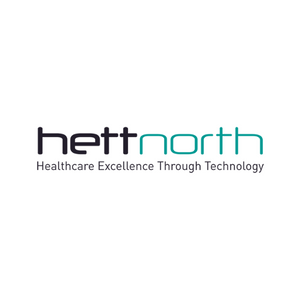In the rapidly evolving landscape of healthcare, a transformative force is reshaping the sector – Digital Transformation. This paradigm shift is not just about integrating technology into existing processes; it's a holistic reimagining of healthcare delivery, management, and patient experience. In this blog, we'll delve into the multifaceted concept of digital transformation in healthcare, exploring its key components, benefits, and the profound impact it has on the entire healthcare ecosystem.
Defining Digital Transformation in Healthcare
Digital transformation in healthcare refers to the strategic use of digital technologies to improve efficiency, enhance patient care, and drive innovation across the entire healthcare continuum. It encompasses the adoption of electronic health records (EHRs), telemedicine, data analytics, artificial intelligence (AI), and other technologies to create a connected, data-driven, and patient-centric healthcare ecosystem.
Key Components of Digital Transformation in Healthcare
-
Electronic Health Records (EHRs)
One of the foundational elements of digital transformation is the transition from paper-based records to electronic health records (EHRs). EHRs streamline information management, providing healthcare providers with instant access to patient data, medical histories, and treatment plans. This not only improves efficiency but also facilitates better collaboration among healthcare professionals, leading to more coordinated and personalised care.
-
Telemedicine and Virtual Care
Telemedicine has emerged as a transformative aspect of digital healthcare, especially in the wake of global events that have accelerated its adoption. Telehealth services enable remote consultations, monitoring, and follow-ups, breaking down geographical barriers and ensuring that patients can access healthcare conveniently. Virtual care not only enhances patient convenience but also optimises healthcare resources and reduces the burden on physical facilities.
-
Data Analytics and Predictive Analytics
The abundance of healthcare data presents a valuable opportunity to derive meaningful insights. Digital transformation leverages advanced analytics to process vast amounts of data, offering healthcare providers actionable insights for decision-making. Predictive analytics, powered by machine learning algorithms, can forecast disease trends, identify high-risk patients, and streamline resource allocation, contributing to more effective and proactive healthcare management.
-
Artificial Intelligence (AI) in Diagnostics and Treatment
AI is revolutionising healthcare by augmenting diagnostic capabilities and facilitating more personalized treatment plans. Machine learning algorithms analyse medical images, pathology reports, and patient data to assist clinicians in accurate and timely diagnoses. AI also plays a crucial role in drug discovery, helping researchers identify potential treatments more efficiently.
-
Internet of Things (IoT) in Healthcare
The integration of IoT devices in healthcare contributes to real-time monitoring and data collection. Wearable devices, smart sensors, and connected medical equipment enable continuous monitoring of patients, providing healthcare professionals with valuable data for preventive care and early intervention. This connectivity enhances patient engagement and contributes to a more proactive approach to healthcare.
Benefits of Digital Transformation in Healthcare
-
Improved Patient Outcomes and Experience
Digital transformation empowers healthcare providers to deliver more personalised and patient-centric care. Access to real-time data, telemedicine services, and predictive analytics contribute to early detection and intervention, leading to improved patient outcomes. Patients, in turn, experience greater convenience, enhanced communication with healthcare providers, and increased engagement in their own health management.
-
Enhanced Efficiency and Cost Savings
The adoption of digital technologies streamlines administrative processes, reduces paperwork, and minimises manual errors. Automation of routine tasks allows healthcare professionals to focus more on patient care. Additionally, digital transformation optimizes resource allocation, leading to cost savings and increased operational efficiency for healthcare organisations.
-
Interoperability and Collaboration
Digital transformation breaks down silos in healthcare by promoting interoperability – the seamless exchange of information among different healthcare systems and providers. This facilitates better collaboration, ensuring that all stakeholders, from primary care physicians to specialists, have access to comprehensive patient data. Improved communication and collaboration result in more coordinated and holistic patient care.
-
Innovation and Research Acceleration
The integration of digital technologies expedites healthcare research and innovation. With advanced analytics, AI, and data-driven insights, researchers can identify patterns, discover new treatment modalities, and accelerate the development of innovative therapies. This rapid pace of innovation contributes to staying ahead of emerging health challenges.
Challenges and Considerations in Digital Transformation
While the benefits of digital transformation in healthcare are substantial, the journey is not without challenges. Issues related to data privacy, security, regulatory compliance, and the digital divide must be carefully addressed. Healthcare organisations need to invest in robust cybersecurity measures, ensure compliance with data protection regulations, and strive for inclusivity in technology adoption to avoid leaving certain demographics underserved.
The Future of Digital Transformation in Healthcare
Digital transformation is reshaping the landscape of healthcare, bringing forth a future where technology enhances patient care, improves efficiency, and drives innovation. As healthcare organizations embrace this paradigm shift, they must prioritise patient-centric approaches, data security, and collaboration among stakeholders. The ongoing digital transformation journey in healthcare promises a more connected, proactive, and efficient healthcare system, ultimately contributing to improved outcomes and a healthier global population.
Find out More About Digital Transformation in Healthcare
Join us at HETT North on 28th February in Manchester to find out more about digital transformation in healthcare.
Register for your FREE pass now to enjoy:
- 40+ hours of CPD-accredited content across 6 content streams
- 100+ innovative suppliers
- 1-2-1 meeting opportunities with over 1,400 like-minded peers
- 100+ expert speakers including Jenny Chong, Masood Ahmed & Natasha Phillips
%20(1).png?width=500&height=58&name=HETT%20insights%20logo%20RGB-04%20(1)%20(1).png)


